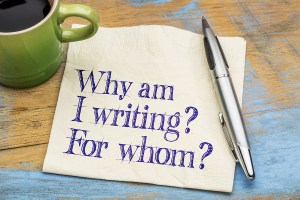HOW TO CREATE A COMPARATIVE BOOKS LIST THAT WILL GET YOU A BOOK DEAL
By Nancy Peske
The comparative books list is a crucial element in a successful book proposal. It is your best tool for convincing an agent or an in-house acquisitions editor that your book will stand out in the marketplace and add something new while appealing to an established book-buying audience. How do I know this? Because when I was an in-house editorial assistant at HarperCollins Publishers many years ago, it was my job to check out the comparative books lists in book proposals my boss was considering to see if there was any way to strengthen them, which would make it easier for us to convince the rest of the book publishing team that the book would make money for us and be right for our list. I know how to create a comparative books list that will get you a book deal because I’ve done it many times.
In-house, the editorial department is less concerned with how many people fit into the broad demographic your book is addressing than the sales figures for books that appeal to that particular audience. If a publisher has never published, say, a book on leadership in the corporate world, it does not matter how many leaders in the corporate world are potential book buyers unless the house has already decided to take the plunge into this area of publishing. The book may simply be wrong for their list. They’ll compare your books to other books that have been successfully published by their house or another publisher. They will research what those other books’ sales figures are so they can get a sense of how well your book might sell.
You need to describe your book in ways that make it seem fresh, original, and important. If an in-house acquisitions editor knows the market for your type of book very well, she may immediately see the appeal of your book and its audience—and then she may tell her colleagues about comparative books that prove yours has the potential to reach book buyers, too. However, in my experience, it’s best to make her job of “selling” your book to her colleagues and bosses easier by creating a terrific comparative books list in a compare-and-contrast format.
To do so, you must research other similar books that are already in the marketplace. Go to the bookstore or check them out online, and familiarize yourself with them. (Amazon.com is a great research tool.) Then, you’ll need to choose 3-5 successful books that are similar to yours in some way, yet different. Choose ones that have been published fairly recently and are selling very nicely. Pay attention to whether they’ve been updated, had multiple printings, or have a high ranking on BN.com or Amazon.com if they have not been published recently.
Stick with books that are closely related to your topic. What other similar books might your ideal reader have purchased recently? Why would that reader want your book, too? Maybe she needs more about a specific topic that the other books don’t delve into deeply enough. Maybe the approach of other books isn’t right for your audience. Maybe the other books available are very dated. Maybe your voice is fresh and more playful than the voice used in other books. Maybe it’s more serious and weighty. Maybe you know how to speak to your generation better than the other books out there do.
In a few sentences, explain the attraction of the successful books you’ve listed, and why your book would appeal to that audience as well while offering something different. If there are hundreds of books on environmentally friendly “green cleaning” that your book Cleaning Your Car Without Hurting the Environment will appeal to, you might choose the top “green cleaning” books for comparison. However, then you must make the case that people who wash their cars care about being “green,” to the point that they’d buy a book on the topic rather than just research it online and read a short article or two. Is this a book for owners of vintage and collectible cars who are picky about the products they use, and who have shown they will buy books on car care and are interested in protecting the environment? Or do you need to rethink your book’s topic and audience? Do an Internet search for the title of your book and its main topic. What comes up? Will people want more than what they can find through a simple search? For example, parenting books that provide strategies are more likely to sell than books that simply list tips or ideas. You can find ideas all over the Internet, so a book that incorporates them into a larger strategy has value beyond just a collection of tips.
Keep in mind that an in-house acquisitions editor will research books on your topic or in your genre, too. He’ll have some access to information about books that are “in the pipeline,” that is, books that are under contract at other publishing houses and not yet on the bookshelves. You can find these, too, if you subscribe to Publishers Marketplace and research what deals have been made recently and in the past. You may not realize that yours is the fourth book on green cleaning for cars to be submitted to that publishing house in a week. Plus, there may be three similar books coming out six months from now. You can’t come into the game too late and expect a publisher to get excited about a topic that is already fading in popularity. Use your comparative books list to show that you’ve truly got something new to offer book buyers a year or so from now when the book comes out.
In your comparative books list, please don’t say anything negative about other books! You can point out what they’re missing or any weaknesses they have, but if you do, keep it positive. You never know whether an editor and agent is a huge fan of the book you’re criticizing, or even served as its editor! Be proud of your “baby” but recognize the value of the other books in your genre that have paved the way for yours to achieve success.


Nancy Peske is a ghostwriter, developmental editor, and book publishing consultant who has done editorial work on books including bestsellers and award-winners for over 30 years.